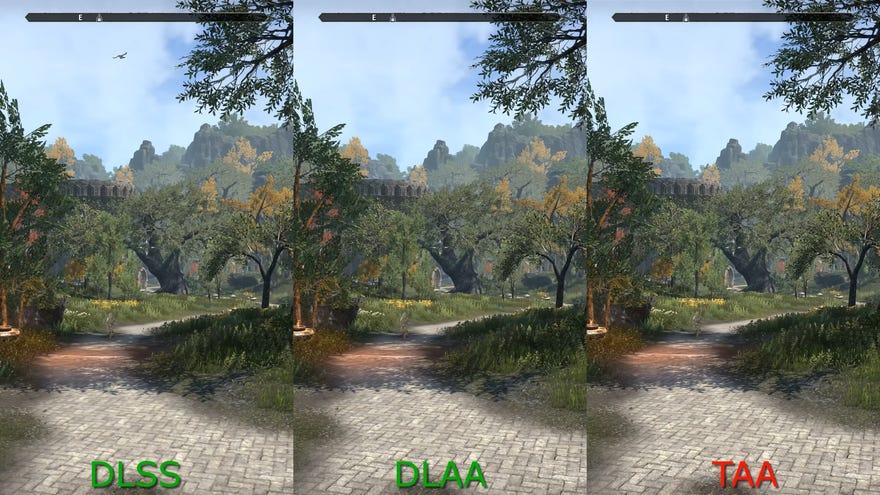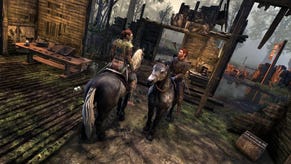Elder Scrolls Online video shows Nvidia’s new DLAA tech in action
All the anti-aliasing of DLSS, none of the upscaling
The Elder Scrolls Online is the first game to implement Nvidia DLAA (Deep Learning Anti-Aliasing), and thanks to YouTuber MxBenchmarkPC you can now see how the AI-powered edge-smoothing system looks in the fantasy MMO. DLAA is a new spin on Nvidia’s existing DLSS (Deep Learning Super-Sampling): whereas DLSS involves rendering a game at a lower resolution then upscaling, reducing the performance hit of the AA it applies, DLAA skips the upscaling part and keeps the resolution native.
It still applies an AA algorithm developed through machine learning, but is intended more for those with one of Nvidia's best graphics cards: i.e. systems that can already run games at high frame rates without the help of upscaling. Does it work? The comparison video does show one advantage over The Elder Scrolls Online’s alternative TAA option, with less shimmering on objects viewed at a distance. DLAA appears slightly harsher on the frame rate, though, and to my eyes TAA still looks a little sharper in motion. Have a squint for yourself:
Since ESO is also getting DLSS support, we can see how all three compare. Sticking with native resolution does help DLAA and TAA overall – some textures lack relative detail on DLSS – but I do think TAA wins out on sheer crispness. Barely. But then there’s less shimmering! But then TAA is consistently running at least 10fps faster! Oh, it’s just so hard to choose.
Even DLSS doesn’t look half bad, and because of its upscaling sleight of hand it still provides its signature performance boost over TAA and DLAA, which face the full brunt of the 4K resolution. Without DLAA serving up major visible improvements over other native-res AA solutions, I’d personally be inclined to use DLSS even with the loss of detail, but then I usually tend towards speed over fidelity.
If you’re more willing to sacrifice frames for sharpness, DLAA could still prove a worthy alternative. Like DLSS it’s very possible that the implementation of DLAA will vary across different games, so some might look better than others. ESO is showing its age nowadays, too – I’d be interested to see DLAA on something more recent.
DLSS, for its part, is on the up and up. The number of DLSS-supporting games recently hit the 100 mark, following a burst of indie releases.










